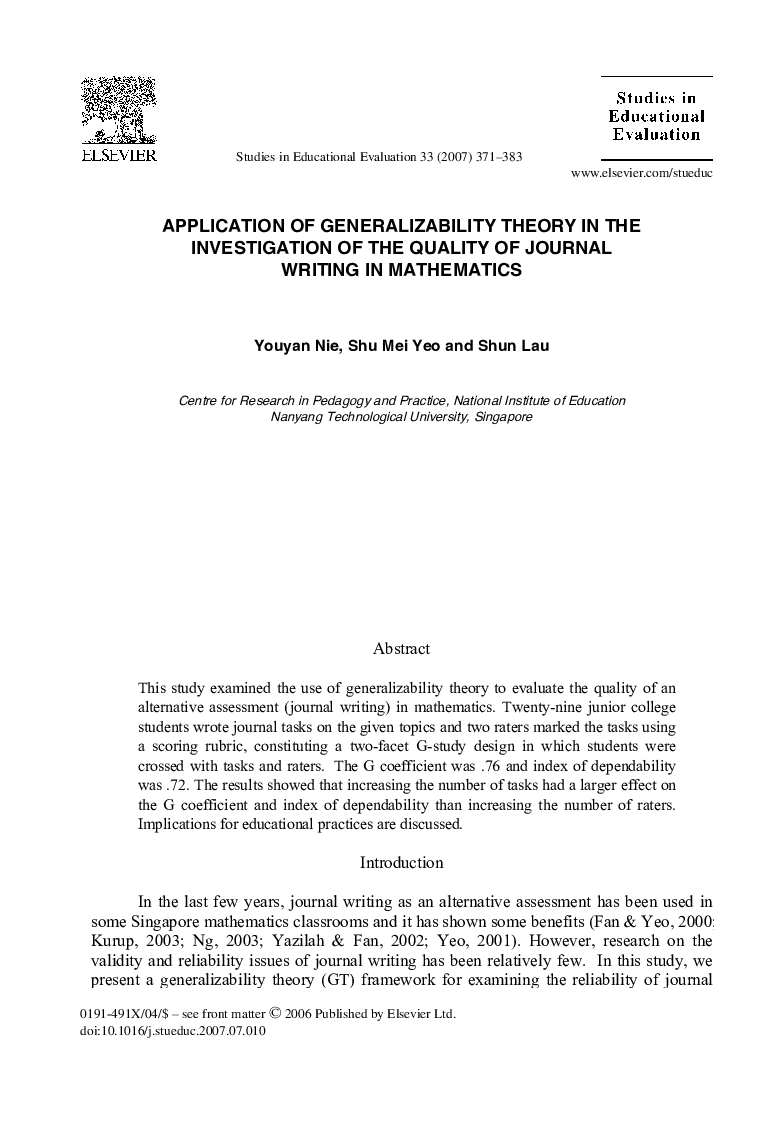| Article ID | Journal | Published Year | Pages | File Type |
|---|---|---|---|---|
| 372786 | Studies in Educational Evaluation | 2007 | 13 Pages |
Abstract
This study examined the use of generalizability theory to evaluate the quality of an alternative assessment (journal writing) in mathematics. Twenty-nine junior college students wrote journal tasks on the given topics and two raters marked the tasks using a scoring rubric, constituting a two-facet G-study design in which students were crossed with tasks and raters. The G coefficient was .76 and index of dependability was .72. The results showed that increasing the number of tasks had a larger effect on the G coefficient and index of dependability than increasing the number of raters. Implications for educational practices are discussed.
Related Topics
Social Sciences and Humanities
Social Sciences
Education
